The Spectator Australia has seen a copy of the Defence Department’s un-redacted Defence Assistance to the Civil Community manual which is being used to guide the use of the military during the Covid-19 pandemic.
The manual obtained, unlike publicly available versions, gives detail of how the military are meant to be used.
The document is critical as there is no legislation supporting these operations.
It suggests the ADF are operating in a grey area of the law without legislative and constitutional support and in potential breach of their own guidelines that deal with the way they interact with civil authorities during the covid-19 pandemic that they should be withdrawn from their current roles; in particular their use as “auxiliary police” and “border guards” and their impeding of people’s freedom of movement during the pandemic seem to far exceed their role as described in the Defence Assistance to the Civil Community Manual.
The federal government is relying on the use of executive power to deploy ADF personnel during the pandemic as constitutionally the role of the ADF in civilian affairs at a state level is limited.
In essence, the Constitution provides for the Commonwealth to make laws in the defence of the Commonwealth and the states, protect the states from invasion and against “domestic violence” and that the ADF may be used to protect a state against domestic violence if the state is unlikely to be able to protect itself.
It is silent on the use of ADF in civilian affairs such as their use during natural disasters or, as in this case, a public health emergency.
Under the current arrangements, states and territories must make a request to the Commonwealth for assistance during a natural disaster etc.
But there no legislation outlining the roles and responsibilities of the ADF, limitations on their authority, legal protections and what legal power they may have over fellow Australians.
On August 11 this year the Minister for Defence, Linda Reynolds, confirmed in a media release that the use of Australian Defence Forces would be governed by the Defence Assistance to the Civil Community guidelines.
The DACC manual has six categories of assistance that can be offered to civilian and state government authorities ranging the use of military hardware for air-shows and such like through to DACC 6 which is defence support in non-emergency law enforcement.
The limitations of the use of ADF personnel are clearly spelt out.
The manual states under section 2.3:
DACC support must not involve the use, or potential use, of force by Defence members.
Force includes the restriction of freedom of movement of the civil community whether there is physical contact or not.
It then goes on to explain the operations and use of ADF personnel under DACC 6.
PROCEDURES FOR THE PROVISION OF DEFENCE ASSISTANCE TO THE CIVIL COMMUNITY 6
4.74 Definition. DACC 6 is limited to the provision of Defence support to civil authorities in the performance of non-emergency law enforcement related support where there is no likelihood that Defence personnel will be required to use force. If there is any possibility that force may be required to be used by Defence personnel, the support is to be deemed as Defence Force Aid to the Civilian Authority (DFACA), which is outside the scope of this manual.
The sort of assistance is then itemised:
4.76 DACC 6 assistance may take the following forms:
a. Non-emergency explosive ordnance disposal relating to commercial explosives and chemicals (disposal of explosive ordnance of military origin is a military responsibility and should not be treated as DACC);
b. assistance in post-blast analysis;
c. surveillance (including helicopter or aircraft);
d. searches for hidden materials (including the use of Defence members, equipment and/or dogs);
e. provision of communications and control facilities;
f. provision of interpreters, translators and/or linguists;
g. transportation;
h. administrative support;
and i. use of Defence estate/facilities in order to support the conduct of law enforcement operations.
Section 4.74 makes it clear that the ADF are meant to operate in a support role while 4.76 indicates that in the current circumstance of the pandemic that only items e, f, g, and i are relevant.
This seems to be supported by the fact that the ADF rejected a request for surveillance drones.
Under the DACC rules ADF personnel do not have any power of arrest or detention, nor are they allowed to bear arms and they must wear a military uniform with identification.
As Prime Minister Scott Morrison has stated: “Members of the Australian Defence Force are not authorised as enforcement officers, regarding prosecution in states and territories”.
They cannot use force, nor compel compliance with directives. They are in the same position as members of the SES or private security guards.
However, the Manual’s guidelines may have been breached been and in doing so ADF have supported an egregious attack on the civil rights and liberties of Australians and in particular Victorians.
The ADF is now patrolling the streets of Melbourne with Victorian Police; they are acting as border guards both intrastate and interstate; they are offering uniformed physical support to contract tracers door-knocking.
And particularly damning is that the ADF in their role as border guards have seriously breached section 2.3 of DACC which specifically states they must not use force and that includes restrictions of freedom of movement for the civil community.
The joint patrols with Victoria police are impossible to justify under DACC as support can only be given after:
An assurance is given by the requesting authority that the assets available to that authority (Local, State, Territory and Commonwealth) have been utilised to the maximum possible extent and that the only other suitable resource is available from Defence.
Even if the Victoria Police have been “utilised to the maximum possible extent” and as ADF have no power of arrest and the DACC rules state that they must not use force they are not able to offer any material support to police patrols.
The ADF is being used on the street of Melbourne simply to intimidate citizens by swelling the size of police patrols, which have been in excess of 20 or more officers and soldiers.
Despite having no civil power the military are invested with authority via the respect of the ADF’s institutions and the uniforms they wear.
It is only their uniforms that imbue the ADF with authority and that is the reason the state government is using them in patrols and as border guards.
If police or the state government wanted to bolster numbers they could have employed anyone, but without a uniform and the authority invested in it those people would have had no moral authority or sway over the public.
That military authority is being used to intimidate citizens simply by patrolling with police, or acting as border guards, or as support for contact tracers.
The federal government has already withdrawn ADF personnel from their Queensland border duties as the government wanted the border opened.
The federal government says it wants Victoria’s economy opened for business, but in an irony of ironies, it is allowing ADF personnel to assist with the state lockdown.
When the ADF patrol through the streets of Melbourne with the Victoria Police they are enforcing laws and their associated horrendous fines that prevent businesses opening.
If the federal government wants business opened up they should withdraw the troops as a starter, as they did in Queensland.
Here, in Victoria, there is no excuse not to act and to act now.
It is not the job of the ADF to intimidate citizens or prevent their freedom of movement, yet this is what is occurring.
Continued use of the ADF in these roles only works to undermine confidence in the military.
The ADF should be withdrawn from these roles immediately.
Legislation is urgently needed and not put into a to protect soldiers acting on the request of Government in ‘non-defence roles’, and to spell out clearly how the forces should be used for non-traditional purposes to ensure civil liberties are not unduly infringed.
The ADF, operating in a grey limbo with only the DACC Manual as a guide, leaves open the misuse of military personnel in a civil situation as we are seeing.
The ADF has its role in assistance to the civilian community, but it is not the role it is currently engaged in.
Got something to add? Join the discussion and comment below.
Get 10 issues for just $10
Subscribe to The Spectator Australia today for the next 10 magazine issues, plus full online access, for just $10.

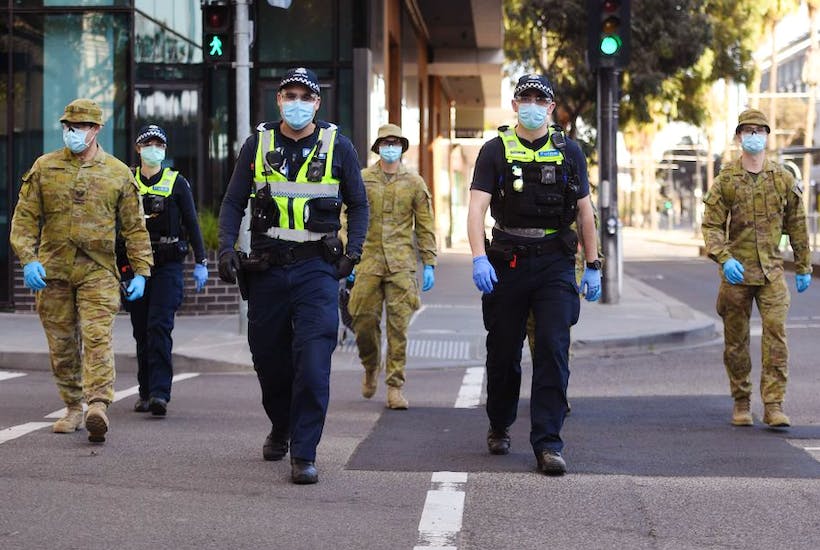

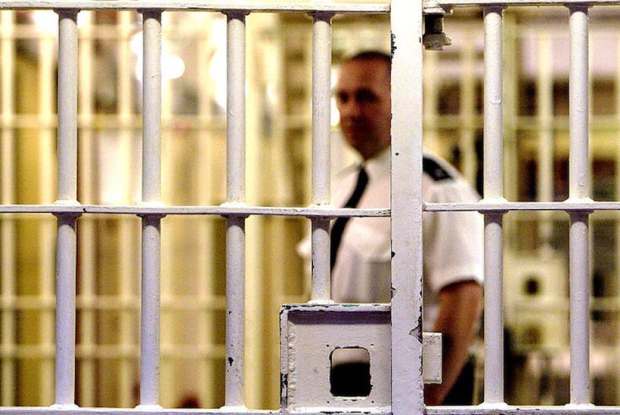
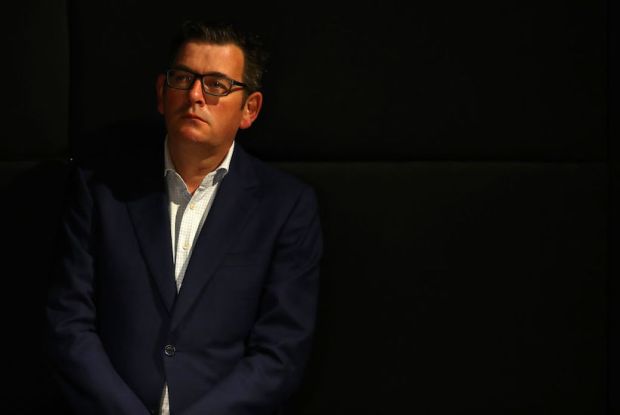
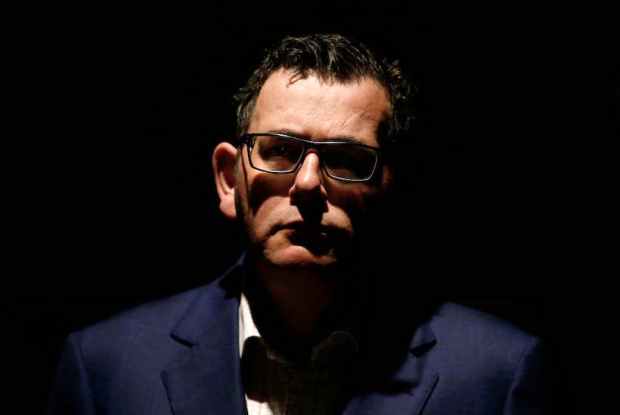
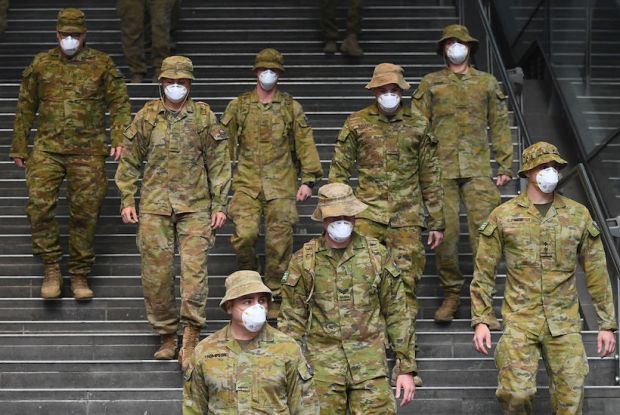


















Comments
Don't miss out
Join the conversation with other Spectator Australia readers. Subscribe to leave a comment.
SUBSCRIBEAlready a subscriber? Log in